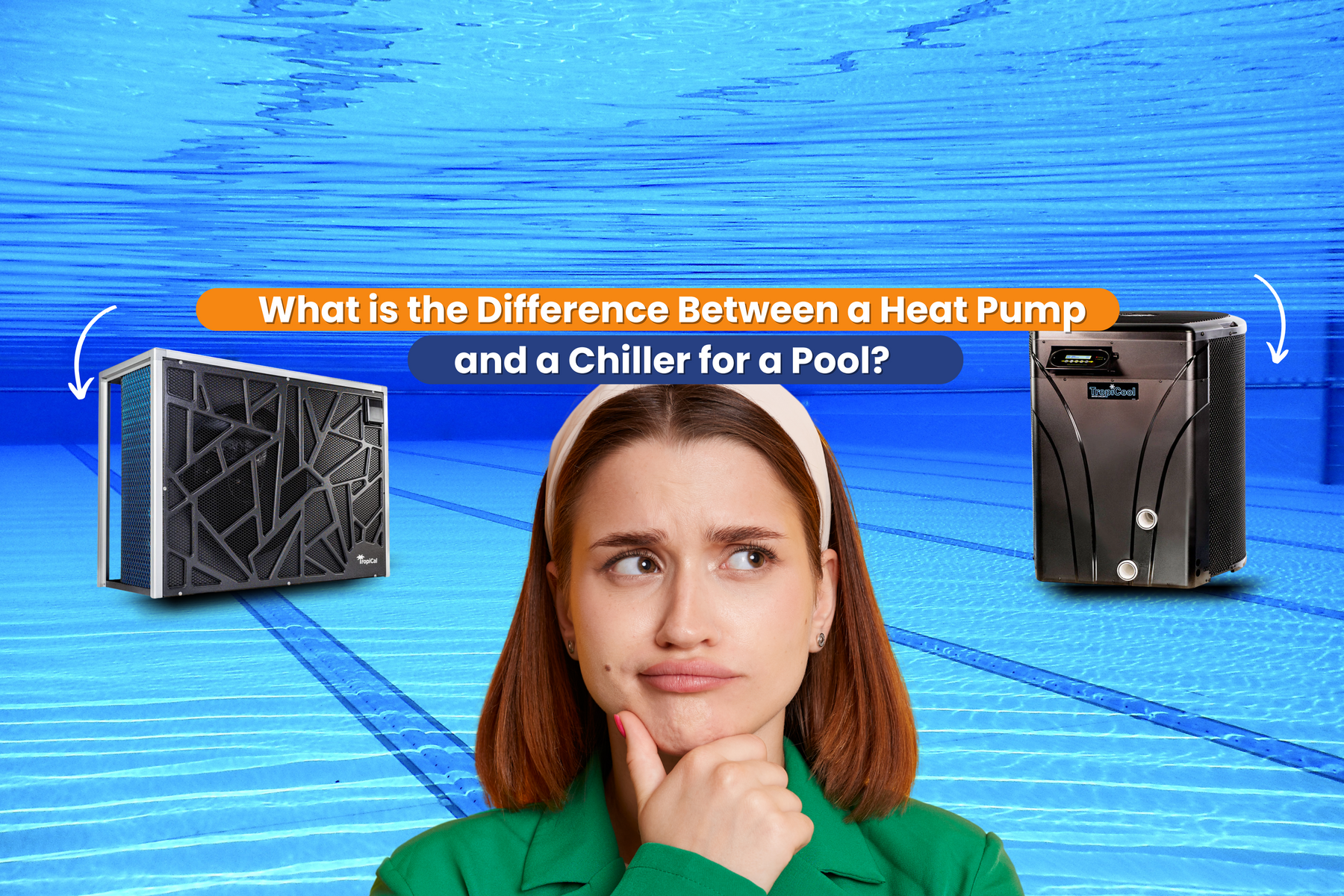
What is the Difference Between a Heat Pump and a Chiller for a Pool?
Understanding Pool Temperature Control: Heat Pumps vs. Chillers
Short answer: A heat pump heats your pool, and a pool chiller cools it. If you want to swim in perfect water all year, a pool heater chiller combo gives you both in one setup.
Picture this: It’s July, and your pool feels like bathwater. Then in October, it’s freezing cold. What gives?
That’s where pool temperature control systems come in. The right system keeps your water comfortable, no matter the weather. Let’s walk through how each one works so you can figure out what suits your pool best.
What is a Pool Heat Pump?
A pool heat pump is your go-to option when the water feels too cold to enjoy.
It doesn’t create heat the way a gas heater does. Instead, it pulls warmth from the air and transfers it into your pool. So as long as the air isn’t freezing, it can keep your pool nice and warm.
This makes it ideal for places like California, Texas, or the Southeast where winters are mild but not warm enough for swimming without help.
How a Pool Heat Pump Heats
Here's the simple version: the unit pulls in outside air using a fan. The air flows over a coil filled with refrigerant. That refrigerant captures the heat and moves it through a compressor, where it gets even hotter.
Then it transfers that heat into your pool water through a heat exchanger.
The AquaCal HeatWave SuperQuiet is built to run efficiently and quietly in mild to warm climates. Perfect for residential pools that get regular use.
What is a Pool Chiller?
If your pool feels more like soup in the summer, a pool chiller is what you need.
These are especially popular in hotter states like Arizona or Florida, where intense sun can warm your water past the point of refreshing.
A chiller cools things down so that every dip actually cools you off - not warms you up.
How a Pool Chiller Cools
Chillers work a lot like an air conditioner.
Water gets pulled into the system, where a fan and compressor pull out the heat. The cooled water then returns to the pool, giving you that crisp, refreshing feel.
The Glacier Pool Cooler is one of the top-selling chillers here. It doesn’t use refrigerants and is designed for maximum cooling with low energy use.
Key Differences: Functionality and Application
Let’s break it down clearly:
-
Heat pumps are used to warm pool water.
-
Chillers are used to cool pool water.
-
Heat pumps rely on warm air to work efficiently.
-
Chillers are built to handle high heat and humidity.
-
Heat pumps are great for spring, fall, and cooler evenings.
-
Chillers shine during blazing-hot summer days.
Still not sure? Ask yourself this: Do I want to swim comfortably when it’s chilly out, or do I want cooler water when it’s scorching hot?
The All-in-One Solution: Pool Heater-Chillers
Sometimes, you really don’t want to choose. That’s where a combo system comes in.
If you swim in both warm and cold weather, or if you live somewhere with big seasonal swings, a pool heater-chiller combo could be your perfect match.
How a Pool Heater-Chiller Works
These hybrid systems combine heating and cooling in one unit.
They let you raise or lower your pool’s temperature with the same equipment. Most come with an easy control panel or even app access so you can switch between heating and cooling in seconds.
For example, the GulfStream HE150 Heater & Chiller is built for year-round pool temperature control. It’s energy efficient, super quiet, and handles both tasks in one simple package.
Benefits of an Integrated Heater-Chiller System
Why do pool owners love the combo setup?
-
You get full control over your pool’s temperature, all year.
-
One system takes up less space than two separate units.
-
It saves time and money on installation and maintenance.
-
Ideal for families who use the pool often, no matter the season.
-
Works great for commercial pools or Airbnb hosts who need consistent comfort.
Instead of constantly adjusting your swim plans to the weather, the combo system adjusts to you.
Whether you need a heat pump, a chiller, or a system that does both, it all comes down to how you like your swim. Want to warm up a chilly morning dip? Go for a heat pump. Prefer to cool off during a blazing summer afternoon? Pick a chiller.
Want both options in one unit? A pool heater-chiller combo is the way to go.
Related reading:





Leave a comment